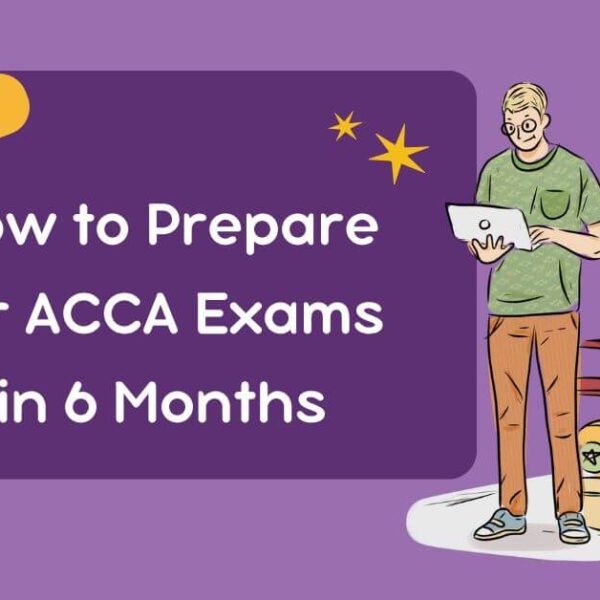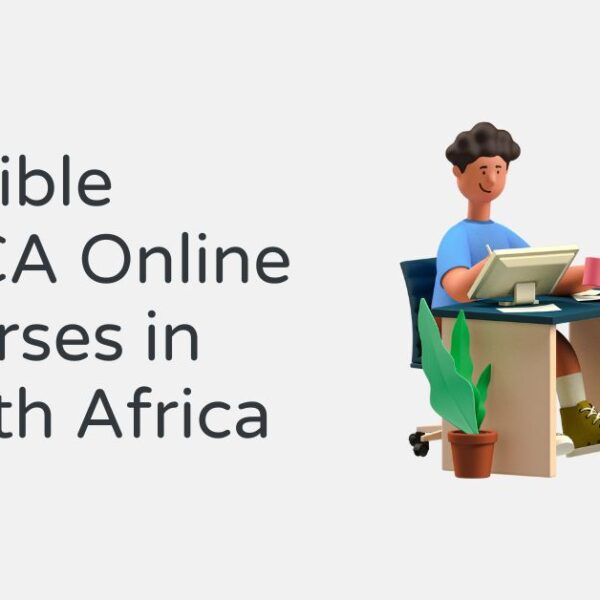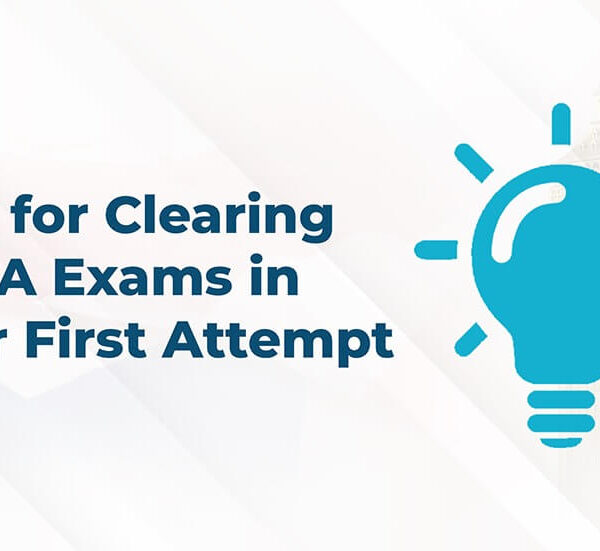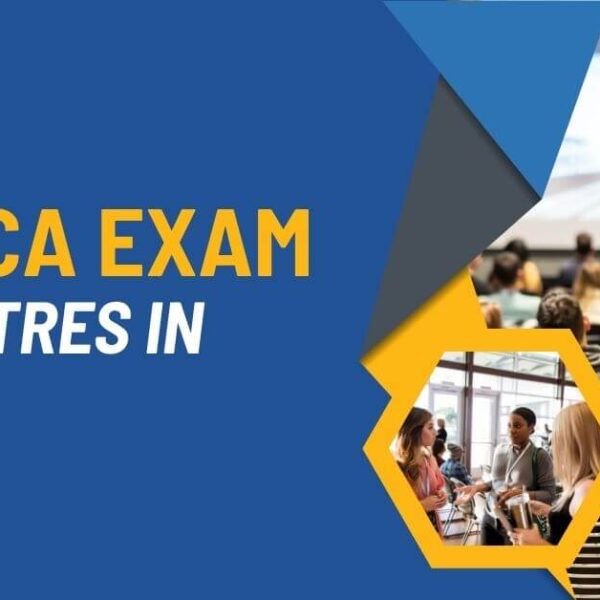The Association of Chartered Certified Accountants (ACCA) qualification represents a globally recognised pathway to accounting excellence that is increasingly valued in Uzbekistan’s evolving financial sector.
For prospective students considering this prestigious certification, understanding the comprehensive course structure and requirements is essential for effective planning. This detailed guide provides Uzbekistani students with everything they need to know before embarking on their ACCA journey.
Qualification Structure and Progression Path
The ACCA qualification is thoughtfully structured to develop both technical expertise and professional skills through a progressive learning journey:
Foundation Level (Optional)
For candidates without prior accounting qualifications, the Foundation level provides an introductory knowledge base. This level includes:
- Introduction to Financial and Management Accounting
- Intermediate Financial and Management Accounting
- The Business Environment
- Corporate and Business Law
Uzbekistani students with relevant accounting degrees or qualifications may be eligible for exemptions from some or all Foundation papers, allowing them to proceed directly to the Applied Knowledge level.
Applied Knowledge Level
This represents the first mandatory stage of the ACCA qualification, consisting of three examinations:
- Business and Technology (BT)
- Management Accounting (MA)
- Financial Accounting (FA)
These computer-based exams establish fundamental accounting principles and can be taken in any order, with flexible examination scheduling available throughout the year in Tashkent.
Applied Skills Level
Building on foundational knowledge, this intermediate level comprises six more challenging examinations:
- Corporate and Business Law (LW)
- Performance Management (PM)
- Taxation (TX)
- Financial Reporting (FR)
- Audit and Assurance (AA)
- Financial Management (FM)
These examinations develop technical proficiency across core accounting disciplines and are typically available in quarterly sessions.
Ethics and Professional Skills Module
Before advancing to the final level, candidates must complete this interactive online module that develops essential workplace capabilities, including ethics, communication, commercial awareness, and analysis.
Strategic Professional Level
The qualification culminates with this advanced stage, featuring four examinations:
Compulsory:
- Strategic Business Leader (SBL) – an integrated case study examination
- Strategic Business Reporting (SBR) – focusing on advanced financial reporting
Optional (choose two):
- Advanced Financial Management (AFM)
- Advanced Performance Management (APM)
- Advanced Taxation (ATX)
- Advanced Audit and Assurance (AAA)
These challenging papers develop strategic thinking and professional judgment through complex business scenarios.
Practical Experience Requirement
Alongside academic examinations, ACCA mandates 36 months of relevant practical experience in accounting or finance roles. This experience must be documented through the Practical Experience Requirement (PER) framework, which tracks development across:
- Technical competencies
- Ethics modules
- Professional skills
Many Uzbekistani students complete this requirement simultaneously with their studies by securing relevant employment in accounting firms, corporate finance departments, or financial institutions.
Study Options in Uzbekistan
Several approaches are available for pursuing the ACCA course studies in Uzbekistan:
Approved Learning Partners
Several educational institutions in Tashkent offer ACCA courses, featuring structured classroom learning. These providers offer:
- Regular face-to-face sessions with experienced tutors
- Structured study programmes aligned with examination schedules
- Peer learning opportunities and study groups
- Practice examinations and assessment feedback
Distance Learning Programmes
For professionals balancing work commitments or those outside Tashkent, ACCA online study options provide excellent flexibility:
- Self-paced learning materials
- Recorded lectures and tutorials
- Virtual classrooms and webinars
- Online tutoring and support
- Interactive practice resources
Self-Study Approach
Many determined candidates in Uzbekistan successfully pursue ACCA qualifications through self-directed study using:
- Official ACCA textbooks and materials
- Revision question banks and practice kits
- Online resources and communities
- Past examination papers and model answers
Examination Arrangements
All ACCA examinations are conducted in English. In Uzbekistan, the following assessment options are available:
Computer-Based Exams (CBE)
Applied Knowledge and some Applied Skills papers are available year-round as on-demand computer-based examinations in Tashkent. These flexible assessments enable candidates to schedule examinations at a time when they feel prepared.
Session-Based Exams
More advanced papers are conducted in quarterly examination sessions (March, June, September, and December) at designated examination centres in Uzbekistan.
Typical Timeline and Study Commitment
The complete ACCA qualification typically requires:
- 3-4 years of part-time study alongside employment
- 1,000-1,500 total study hours across all papers
- Approximately 150 hours of preparation per examination
While this represents a significant commitment, the modular structure allows Uzbekistani students to progress at a pace that accommodates their professional and personal circumstances.
English Language Considerations
Since all ACCA examinations are conducted in English, Uzbekistani students should ensure their language proficiency is sufficient for:
- Understanding complex technical terminology
- Interpreting detailed scenario information
- Expressing accounting concepts clearly in written responses
- Comprehending examination requirements accurately
Many successful candidates combine ACCA studies with English language development to enhance their performance.
Exemptions for Prior Qualifications
Graduates from certain Uzbekistani universities with relevant accounting or finance degrees may qualify for exemptions from specific ACCA papers. The exemption process involves:
- Submitting academic transcripts and qualification evidence
- Assessment by ACCA’s qualification team
- Payment of exemption fees for approved papers
These exemptions can significantly accelerate qualification progress for students with relevant academic backgrounds.
Registration Process
Prospective students in Uzbekistan can begin their ACCA journey by:
- Creating an account on the official ACCA website
- Completing the online registration application
- Submitting identification documents and qualification evidence
- Paying the initial registration fee
- Selecting their first examinations
Support Resources
Throughout their studies, Uzbekistani ACCA students can access:
- Official ACCA study materials and practice resources
- Student support services and examination guidance
- Technical articles and professional insights
- Career development resources and job opportunities
- Global student community forums
Career Outcomes
Upon qualifying, ACCA members in Uzbekistan typically pursue careers in:
- Public practice accounting firms
- Corporate financial management
- Financial analysis and investment
- Audit and assurance services
- Management consulting
- Financial leadership positions
The qualification’s global recognition ensures graduates are well-positioned for opportunities both within Uzbekistan and internationally.
Continuing Professional Development
After qualification, ACCA members are required to maintain their professional knowledge through annual Continuing Professional Development (CPD) activities. This ensures their expertise remains current in Uzbekistan’s evolving financial landscape.
For ambitious accounting professionals in Uzbekistan, the comprehensive ACCA course represents a valuable investment in a globally recognised credential that opens doors to diverse career opportunities and ongoing professional development. With flexible study options and a structured progression pathway, the qualification is accessible to dedicated students regardless of their geographic location or prior experience.








